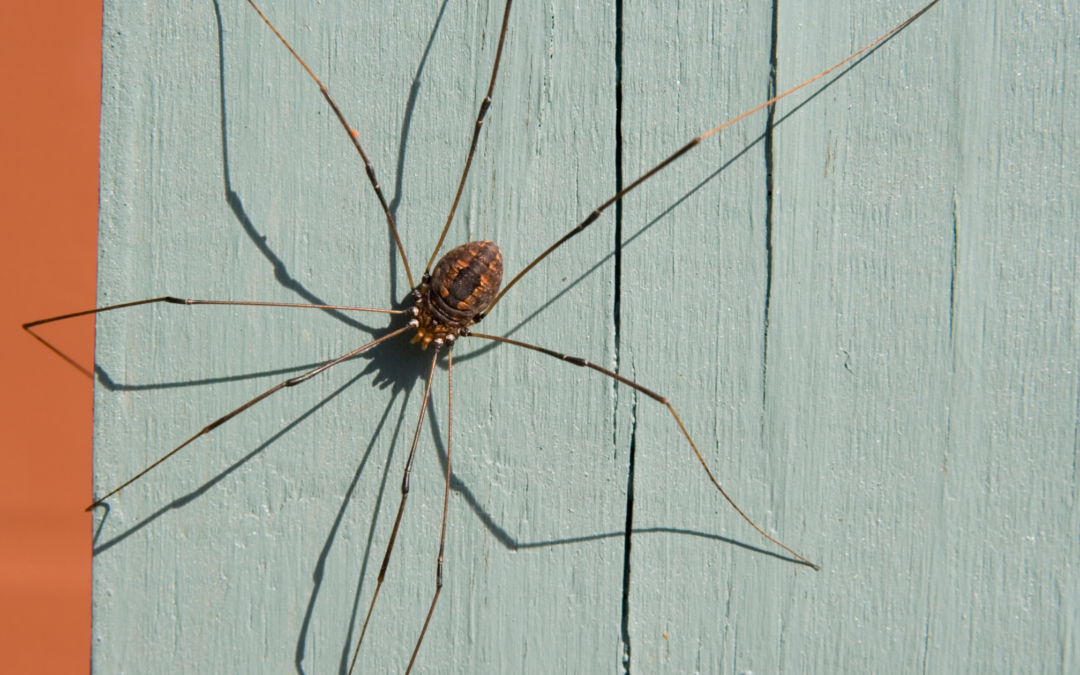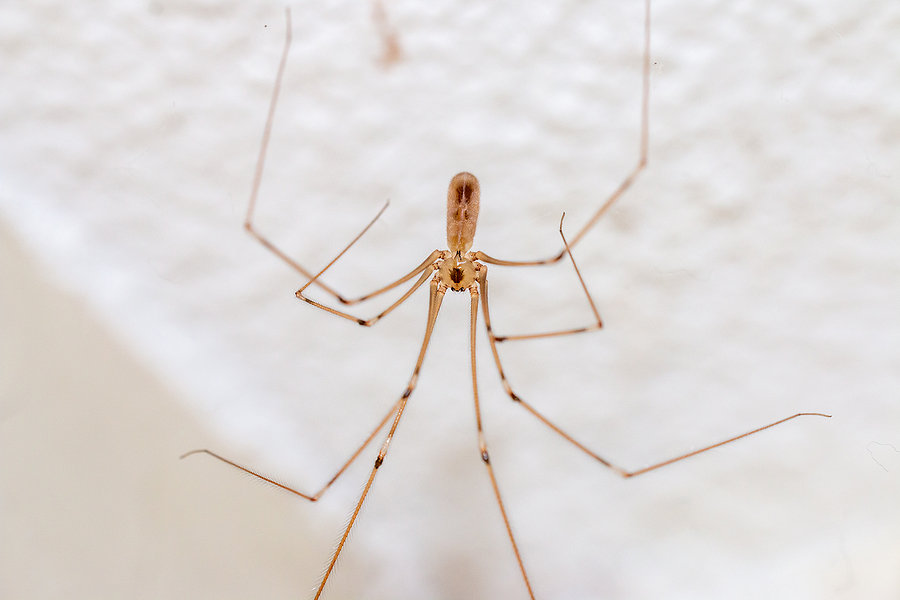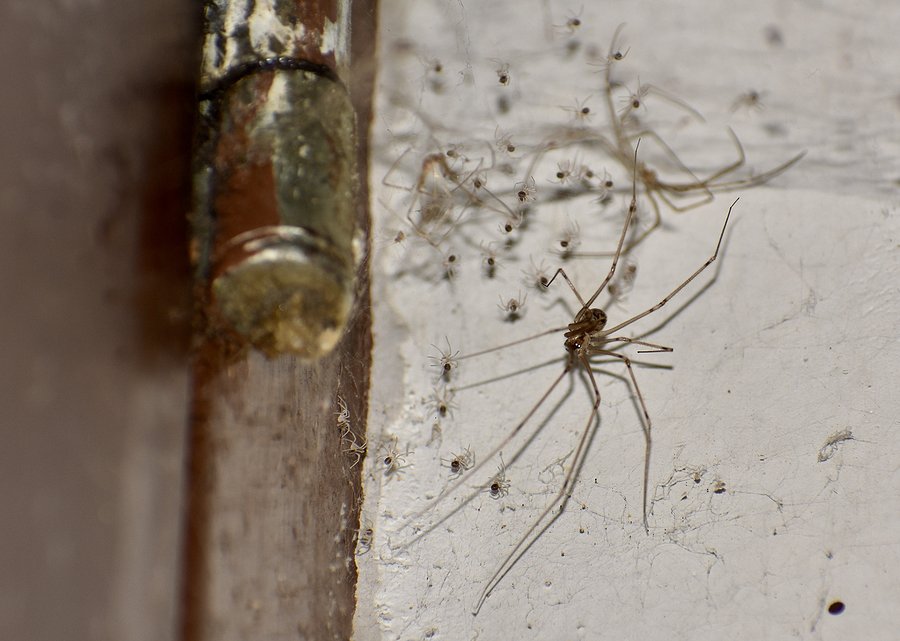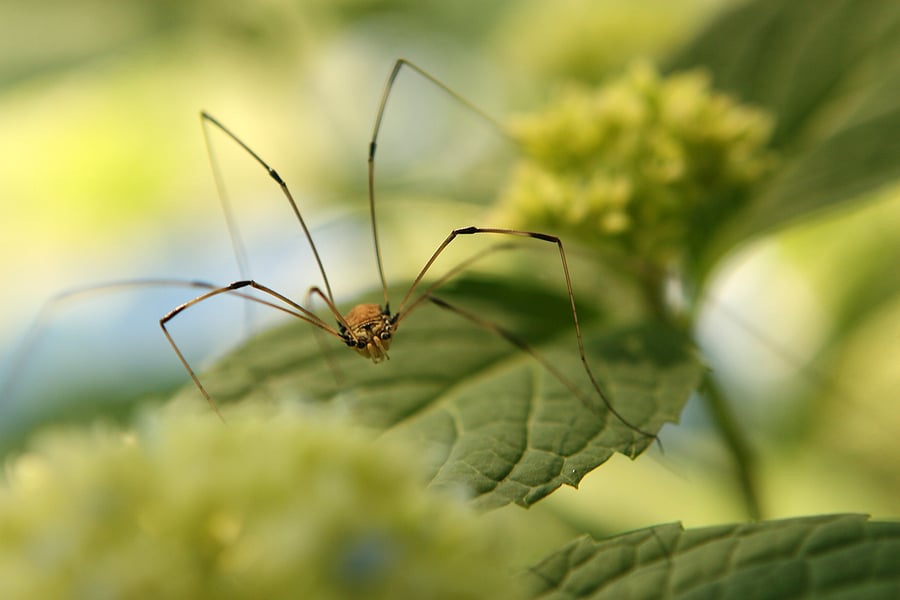READY TO GET STARTED?
REQUEST A FREE ESTIMATE
Fill out the form below or call (888) 466-7849 for a free, no-obligation estimate.

Is a daddy long legs a spider or fly? It’s a common question that often leads to confusion. Let’s delve into the facts to unravel this mystery and understand more about these fascinating creatures.
Contrary to popular belief, daddy long legs are not spiders but belong to the order Opiliones, also known as harvestmen. While they may resemble spiders due to their long, slender legs, they differ in various aspects, including body structure and behavior. Unlike spiders, daddy long legs do not produce silk, lack venom glands, and have a single body segment rather than two distinct segments (cephalothorax and abdomen).
Identifying daddy long legs is relatively straightforward. They typically have a small, oval-shaped body with extremely long, thin legs, giving them their distinctive appearance. These creatures are commonly found in damp, dark areas such as basements, crawl spaces, and garages. They are also known to seek refuge indoors during colder months, making homes a prime habitat.
While daddy long legs are harmless and beneficial predators, their presence indoors can be unsettling for some. To prevent them from entering your home, consider the following measures:
Don’t let pests like daddy long legs disrupt your peace of mind. Take proactive steps to safeguard your home with expert pest control services. Contact a pest control company near you today to request a free quote and learn more about our spider control and general pest management solutions.
You can enjoy a pest-free home and peace of mind knowing that your property is protected against unwanted intruders. Say goodbye to daddy long legs and other pests with comprehensive pest control services.

Georgia is no stranger to household pests. One common visitor that many Georgians encounter is the daddy long legs, a unique arachnid that often finds its way into homes. In this blog post, we’ll explore what attracts daddy long legs, how to identify them, reasons for a daddy long legs infestation, whether they pose a threat to humans, and effective ways to prevent and eliminate them. If you’re dealing with a daddy long legs infestation, read on for valuable insights and practical solutions.
Daddy long legs, scientifically known as Opiliones, are not true spiders but belong to the arachnid family. They are characterized by their long, thin legs and small, oval-shaped bodies. Unlike spiders, daddy long legs have a fused body structure and lack venom glands. Their appearance can sometimes be confused with cellar spiders, but the absence of a segmented body distinguishes them.
Understanding the reasons behind daddy long legs entering homes is crucial for effective control. These arachnids are attracted to damp and dark environments, making basements, crawl spaces, and garages ideal habitats. Additionally, they are opportunistic feeders, preying on small insects and other arthropods found in and around homes. The presence of abundant prey can draw daddy long legs indoors.
The good news is that daddy long legs are not harmful to humans. Contrary to popular myths, they do not possess venomous fangs and are not capable of biting. In fact, these arachnids play a beneficial role by feeding on other pests, helping to control insect populations around your home. While their presence may be unsettling to some, daddy long legs pose no direct threat to your health.
To keep daddy long legs at bay, consider implementing the following preventive measures:
If you’re dealing with a daddy long legs invasion or any other pest issues in Georgia, don’t hesitate to reach out to our expert team. Request a free pest control quote today and let us help you create a pest-free environment in your home. Protect your family and property with our reliable pest control services.
Remember, a proactive approach to pest control is key to maintaining a comfortable and pest-free living space. Contact us now and take the first step toward a pest-free home!

As the leaves begin to change and the air turns crisp, we welcome the beauty of autumn. However, with the arrival of fall, we also welcome a different kind of guest into our homes – spiders. While most spiders prefer to stay outdoors, some decide to seek shelter indoors during the cooler months. Two common culprits are daddy long legs and cellar spiders. In this post, we’ll help you identify and distinguish between these two fall pests, understand their habits, and offer tips on how to keep them at bay.
Daddy long legs and cellar spiders have their similarities but are not the same species. Here are some key differences and similarities between the two:
Both daddy long legs and cellar spiders are frequently found in similar environments, including:
The good news is that both daddy long legs and cellar spiders are harmless to humans. They don’t pose any significant health risks or property damage. In fact, they can be seen as allies in your pest control efforts as they help control populations of other insects in your home.
To prevent and manage daddy long legs and cellar spiders in your home, follow these steps:
If you’re dealing with a fall pest problem in your home, don’t hesitate to request a free pest control quote from our experts. We specialize in handling all sorts of household pests, including spiders, and can provide you with the solutions you need for a pest-free autumn.
Don’t let daddy long legs and cellar spiders take over your living space this fall. With the right knowledge and actions, you can enjoy the beauty of the season without these uninvited guests. Contact your local pest control company today for your free pest control quote and keep your home spider-free all season long.

When you hear the word arachnid the first thing that usually comes to mind is spiders. While spiders do make up a large portion of arachnids, they aren’t the only members. Ticks, mites, scorpions, and harvestmen (also known as grandaddy long legs or daddy long legs) are also members of the arachnid family. Arachnids are defined as animals with 4 pairs of legs, chelicerae (which are fang-like mouthparts), and pedipalps (appendages also found near the mouth). So while they are all members of the same family, granddaddy long legs are not, in fact, spiders.
There are several key differences between granddaddy long legs and spiders. Spiders have 2 body segments (a cephalothorax and abdomen) differentiated by a narrow “waist.” Granddaddy long legs have an oval shaped body with no separation. Spiders typically have 8 eyes while granddaddy long legs have 2. Spiders produce silk and spin webs; granddaddy long legs aren’t capable of this. Spiders are also predators, using their venom to disable their prey. Granddaddy long legs are scavengers and don’t need venom to neutralize food sources.
Although they can be a little creepy looking, these pests are quite beneficial to have around. Because of their varied diet which consists of small insects, worms, snails, droppings, and fungi, granddaddy long legs help keep other pest populations under control. They are harmless to humans.
If you have a problem with granddaddy long legs or other pests, contact your local pest control company for a free evaluation.
Types of Rodents Found in the South
4 Ways To Keep The Lovebugs Away

Daddy long legs, also known as harvestmen, belong to the arachnid family but they aren’t, in fact, spiders. They are cousins of spiders, mites, and scorpions. There are several differences between harvestmen and spiders. One of the most prominent is that harvestmen have one pair of eyes while spiders have 8 pairs of eyes. Harvestmen also cannot spin silk to make webs, so they can’t capture their food like spiders do. They have to ambush their prey instead.
Daddy long legs are omnivores and mostly eat spiders, earthworms, and other insects. When their food supply is limited, however, they will scavenge for whatever they can find like dead insects, insect eggs, and even decaying plants. In fact, these creatures are considered beneficial to have around your house and garden because they eat both garden and household pests.
Harvestmen prefer dark, moist environments so they are most often found in basements, crawlspaces, and garages. They have a unique ability to escape their predators by two different means: they can detach their legs (which will continue to twitch for up to an hour after they fall off) to trick their predators and escape; and they can also secrete a foul-smelling, bad-tasting chemical to deter their attackers.
Now you’ve found a daddy long legs inside your house. Should you be worried? Are these pests poisonous? It is important to distinguish the difference between poisonous and venomous. Poisonous pests cause harm when they are touched or ingested. Venomous pests cause harm by injecting venom through a bite. Although harvestmen do have fangs (also called chelicerae), they are primarily used to grasp and chew food. These arachnids are not known to bite humans and are not considered dangerous to either the health or structure of your home.
Because harvestmen are considered beneficial pests, it’s ok to leave them be if you find them lurking around your house. If you just can’t stomach the thought of sharing your personal space with them, the best way to get rid of them is to sweep or vacuum them up. If you have a problem with any other pests, contact a professional pest control company for a thorough evaluation and pest control plan.
Preventing the Top Three Summer Pests
How to Easily Deter Snakes Away from Your Property
Millipede vs Centipede – Which Is More Dangerous?